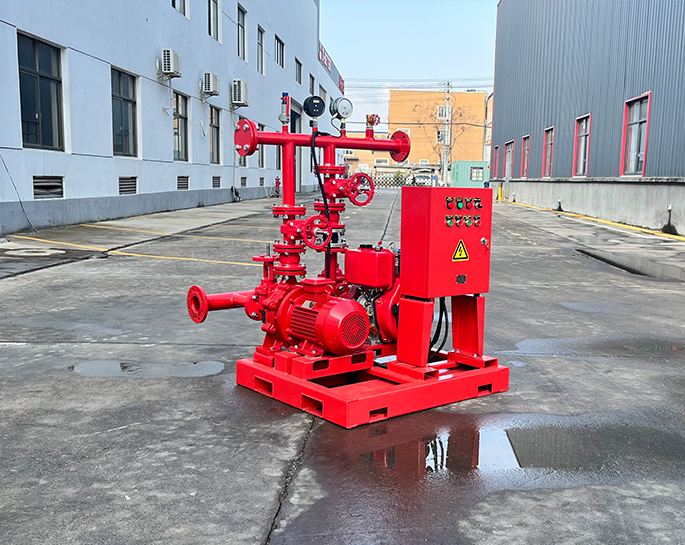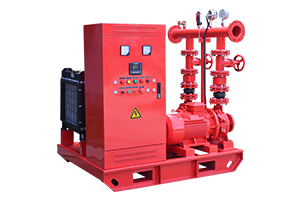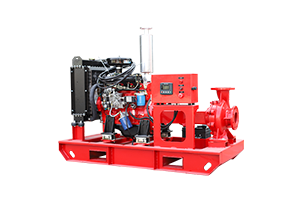Are There Fire Pumps Designed for Corrosive Environments?
Oct 22, 2024
Share:
Yes, fire pumps can be designed specifically for corrosive environments, such as coastal areas, chemical plants, or any place where the atmosphere or water source may contain corrosive elements like saltwater, chemicals, or harsh industrial pollutants. These specialized fire pumps typically feature:
1. **Corrosion-resistant materials**:
- **Bronze** or **stainless steel** impellers, shafts, and casings to resist corrosion from chemicals or saltwater.
- **Coatings** like epoxy or other protective layers applied to the pump components to prevent corrosion.
2. **Seals and gaskets**:
- Special sealing materials like **viton** or **PTFE (Teflon)** are used for gaskets and O-rings to provide additional resistance to harsh chemicals.
3. **Marine-grade components**:
- Fire pumps used in marine environments often have additional treatments or materials that meet the standards for corrosion resistance in saltwater.
4. **Non-corrosive piping and connections**:
- Piping and fittings made of materials such as PVC or other plastic compounds may be used to prevent rust and corrosion from impacting the overall system.
These fire pumps ensure longevity and efficiency even in highly corrosive conditions, protecting both the pump and the system in which it operates.
If you’re looking for such pumps for your business, you could promote them as suitable for challenging environments like coastal facilities or chemical plants, highlighting their durable, corrosion-resistant materials.

1. **Corrosion-resistant materials**:
- **Bronze** or **stainless steel** impellers, shafts, and casings to resist corrosion from chemicals or saltwater.
- **Coatings** like epoxy or other protective layers applied to the pump components to prevent corrosion.
2. **Seals and gaskets**:
- Special sealing materials like **viton** or **PTFE (Teflon)** are used for gaskets and O-rings to provide additional resistance to harsh chemicals.
3. **Marine-grade components**:
- Fire pumps used in marine environments often have additional treatments or materials that meet the standards for corrosion resistance in saltwater.
4. **Non-corrosive piping and connections**:
- Piping and fittings made of materials such as PVC or other plastic compounds may be used to prevent rust and corrosion from impacting the overall system.
These fire pumps ensure longevity and efficiency even in highly corrosive conditions, protecting both the pump and the system in which it operates.
If you’re looking for such pumps for your business, you could promote them as suitable for challenging environments like coastal facilities or chemical plants, highlighting their durable, corrosion-resistant materials.







